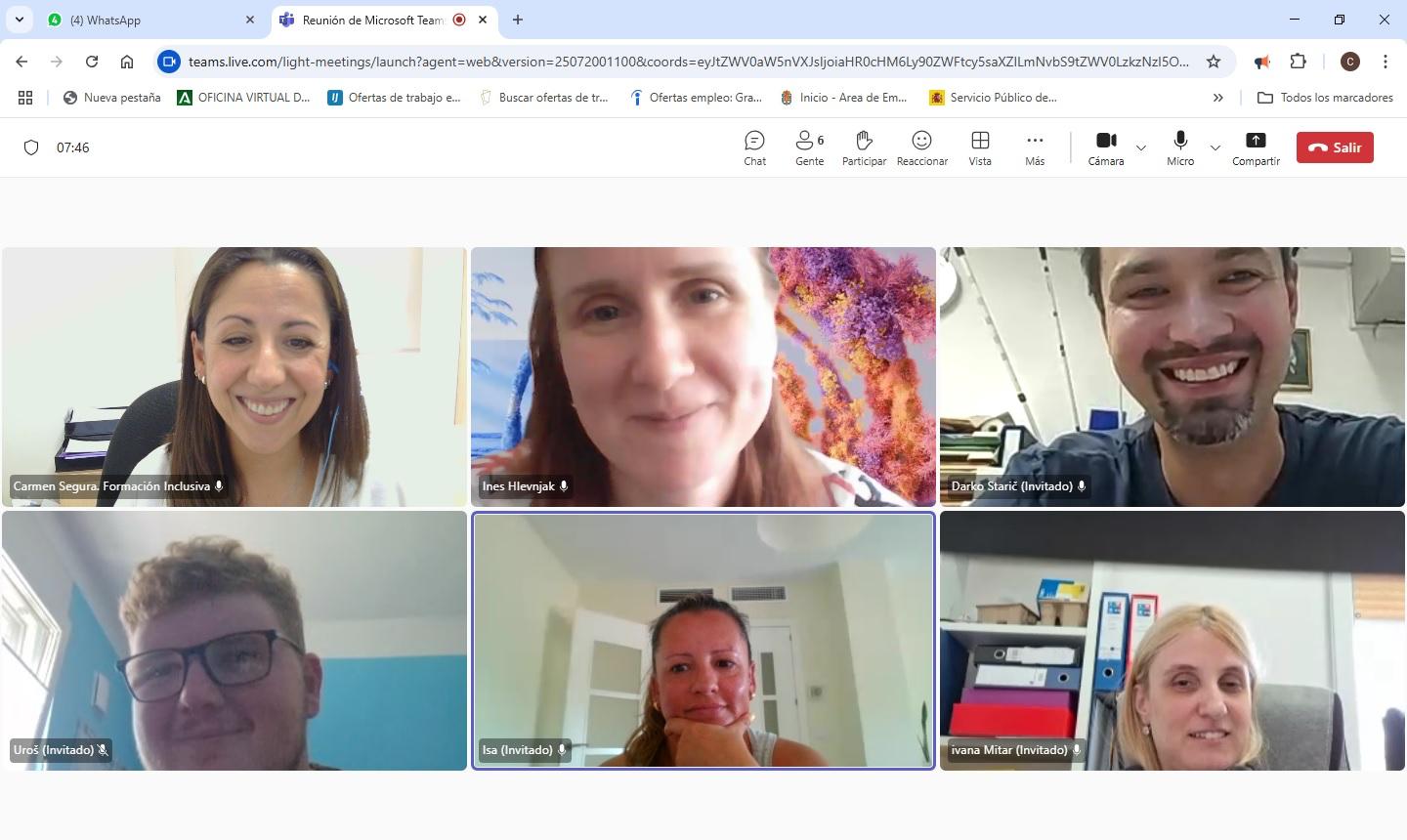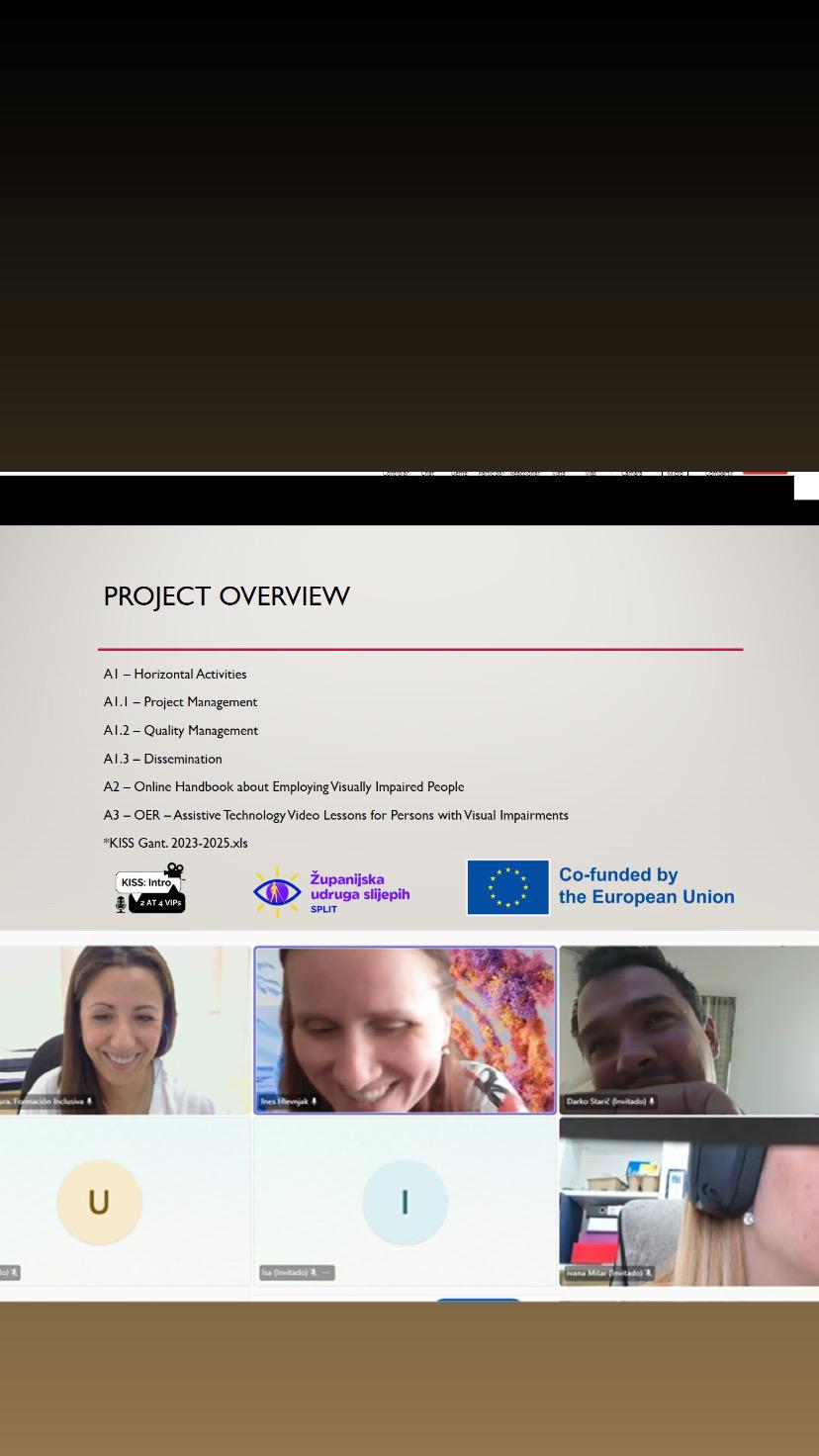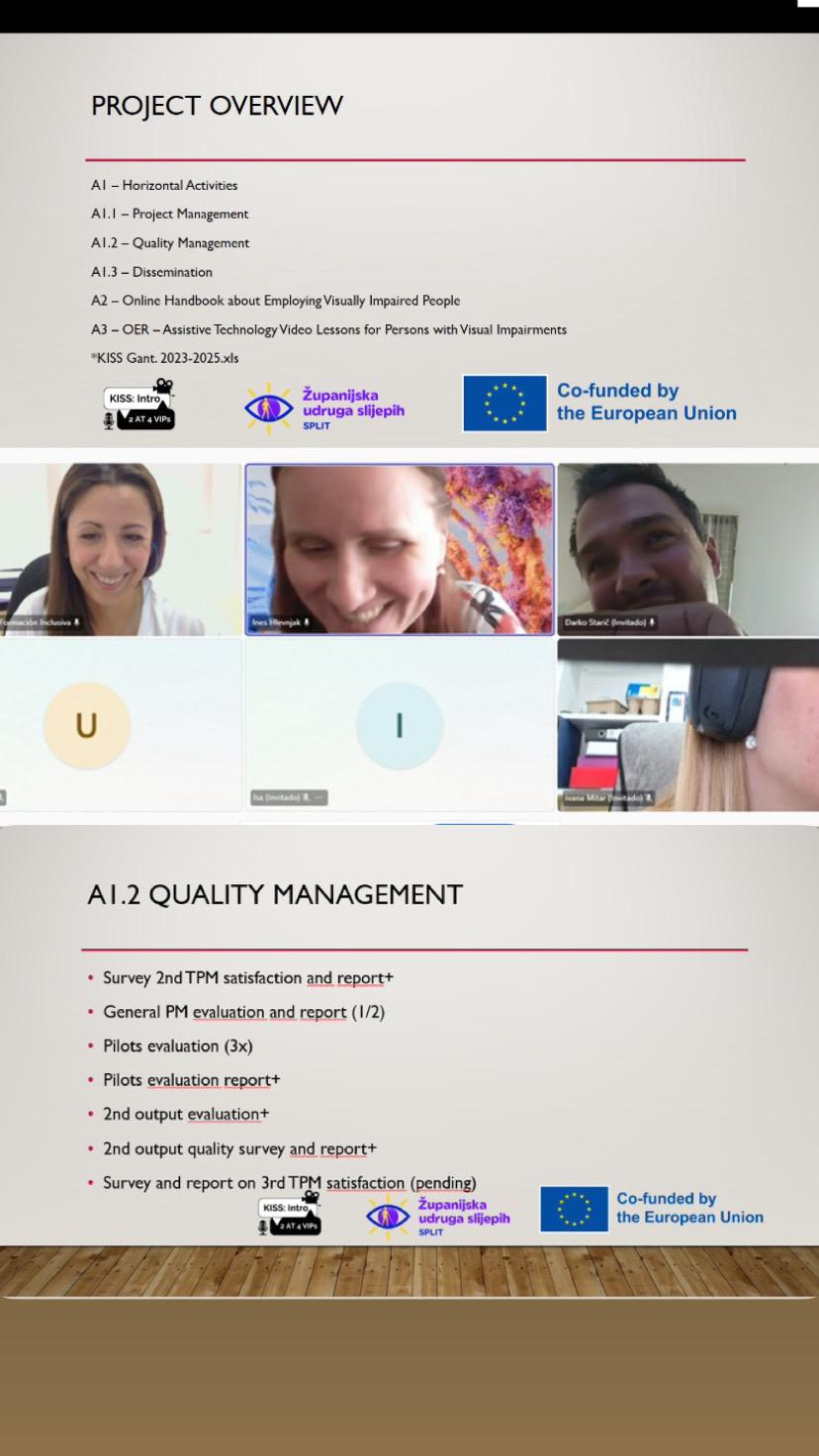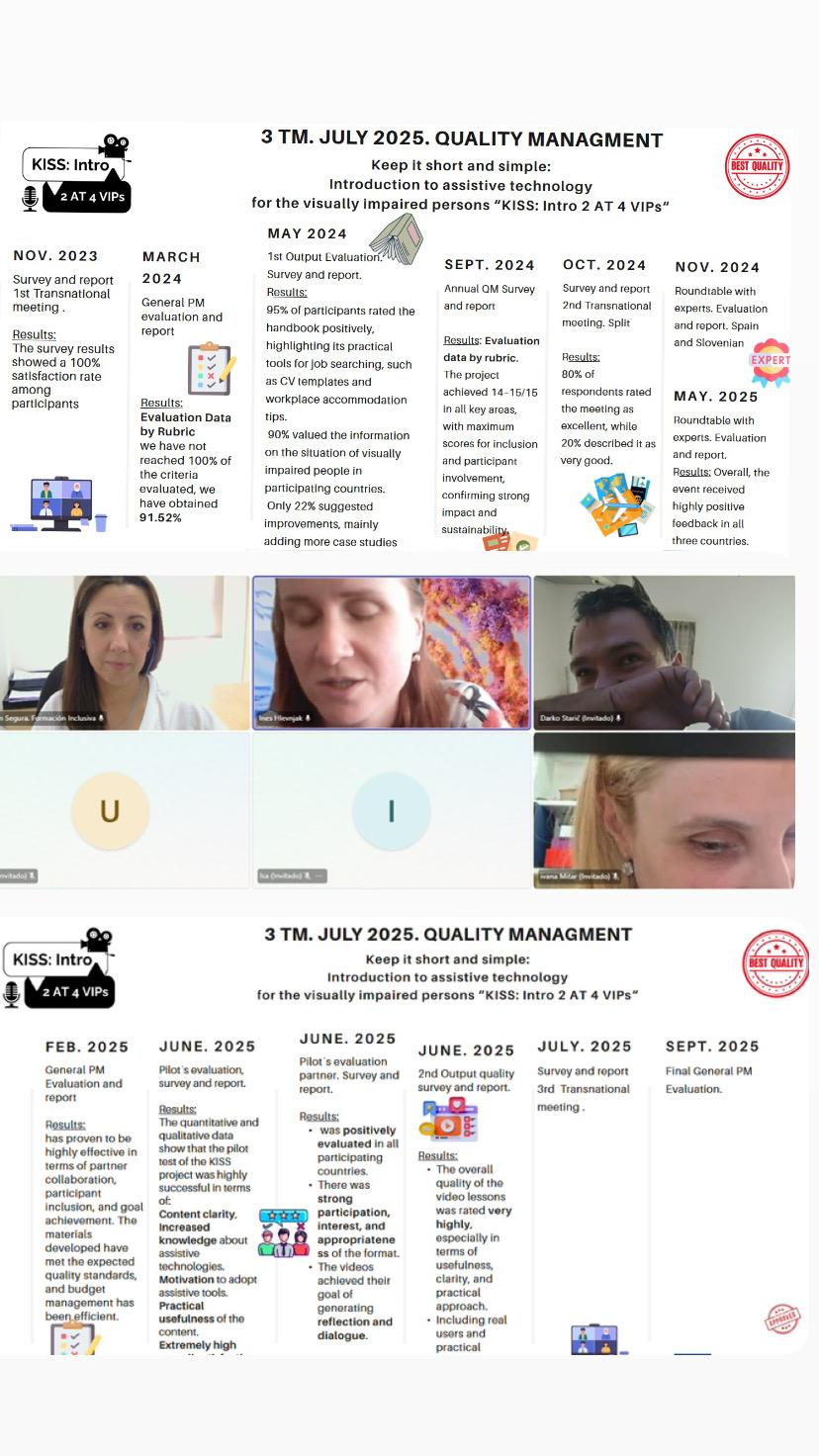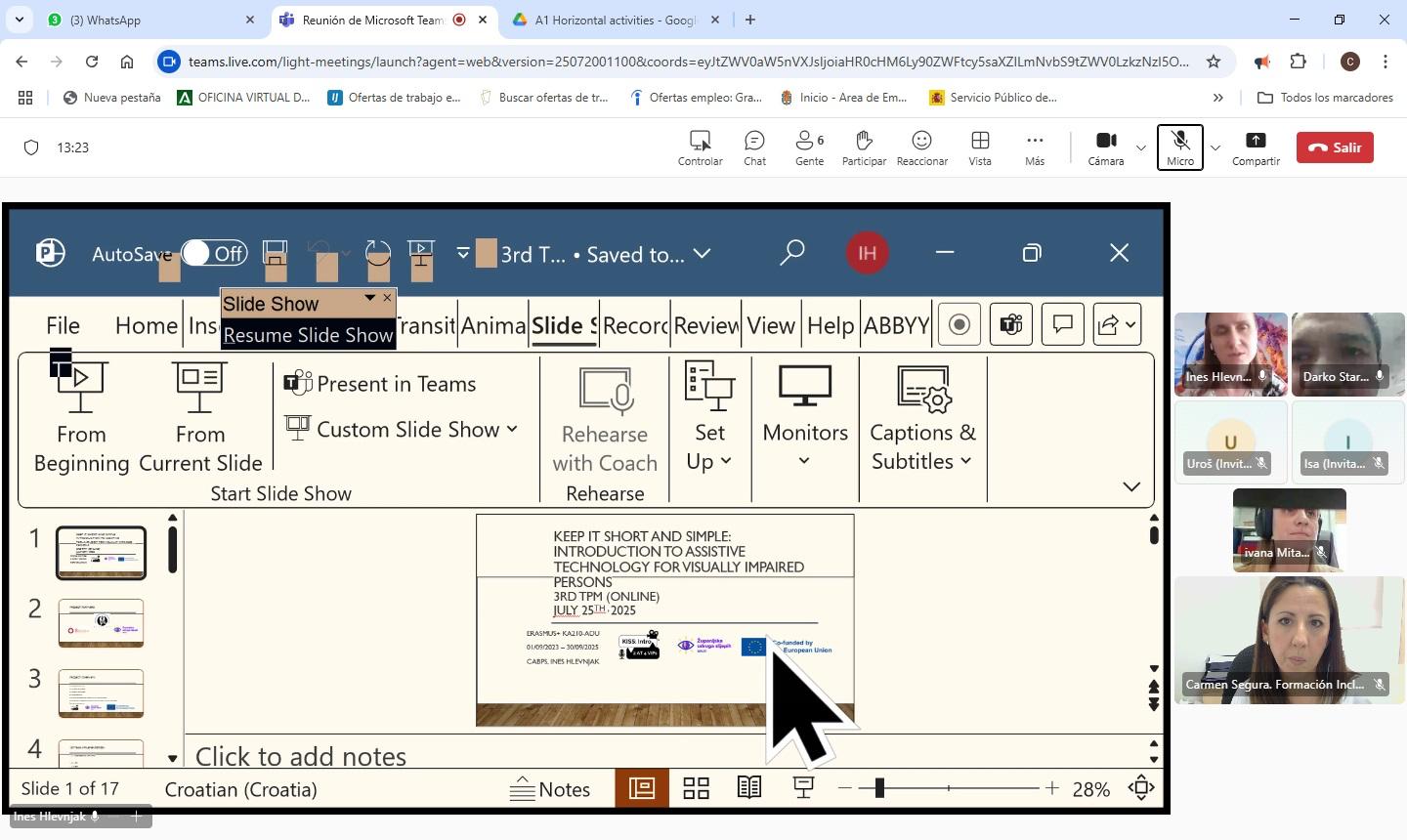The third Transnational Project Meeting (TPM) of the “KISS: Intro 2 AT 4 VIPs” initiative was successfully held online, bringing together partner organizations for a comprehensive review of the project’s progress and a strategic look ahead to its final phase. This meeting marked a pivotal moment in the consortium’s journey, as it reflected on key achievements and reaffirmed its commitment to delivering inclusive, high-quality educational resources for visually impaired persons.
A highlight of the meeting was the in-depth presentation of the second main intellectual output, the KISS Video Lessons. These open educational resources were developed to showcase assistive technologies in a format that is both accessible and pedagogically sound. Built around the principle of “Keeping It Short and Simple,” the videos offer clear, concise instruction on tools ranging from screen readers and braille displays to magnification tools and technology used for workplace adaptations. The production process was collaborative and inclusive, involving feedback from technical experts, educators, and visually impaired users to ensure relevance and usability.
Partners also reviewed the broader implementation efforts, including project management, quality assurance, and dissemination. Budget transfers, transnational meetings, and work progress reports were confirmed as on track, while quality evaluations highlighted the strong reception of the video content. Dissemination activities were praised for their creativity and consistency, with materials shared across digital platforms and institutional networks in multiple languages. The consortium’s embedded approach to outreach ensured that stakeholders remained engaged throughout the project lifecycle.
A key focus of the meeting was the structured rollout of the remaining KISS Video Lessons. Partners discussed the dissemination timetable and agreed on coordinated efforts to promote each video across channels. The calendar reflects a thoughtful strategy designed to maximize visibility and encourage sustained interaction with educators, trainers, and accessibility advocates.
As the meeting drew to a close, partners engaged in a reflective dialogue on the final tasks ahead. Action plans were confirmed for outstanding reports, quality assessments, and dissemination deliverables. The atmosphere was one of confidence and shared purpose, with all participants expressing their dedication to completing the project with the same professionalism and collaborative spirit that has defined its success.
The third TPM concluded with expressions of gratitude and renewed enthusiasm. With strong coordination mechanisms in place and a clear roadmap for the final phase, the consortium is well-positioned to deliver a lasting impact through inclusive, accessible, and transformative educational resources.

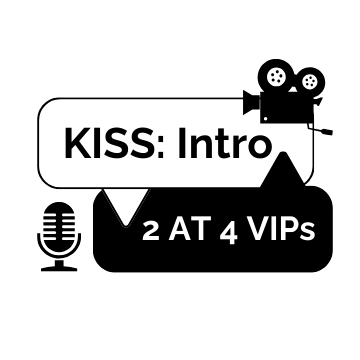 Erasmus+ KA210-ADU project
Erasmus+ KA210-ADU project




